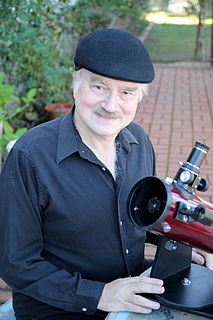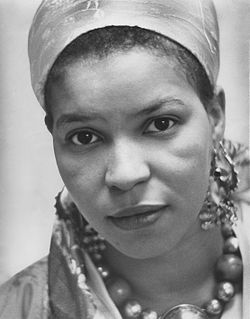A Quote by John Quincy Adams
The influence of each human being on others in this life is a kind of immortality.
Related Quotes
Every human being has consciousness, but not every human being has the same amount. The potential for each one of us human beings is infinite consciousness. This is called supreme enlightenment, and it just needs unfolding by transcending each day. The more consciousness we have, the better life is.
TEF is predicated on logic, a simple wager that every human faces:
If a reasoning human being loves and values life, they will want to live as long as possible-the desire to be immortal. Nevertheless, it's impossible to know if they're going to be immortal once they die. To do nothing doesn't help the odds of attaining immortality-since it seems evident that everyone will die someday and possibly cease to exist. To try to do something scientifically constructive towards ensuring immortality beforehand is the most logical conclusion.
How Human beings are, that is how the society will be. So, creating human beings who are flexible and willing to look at everything rather than being stuck in their ideas and opinions definitely makes for a different kind of society. And the very energy that such human being carry will influence everything around them.
Envy and resentment are terribly corrosive passions. To suffer at the sight or even the thought of others' enjoyment of life makes one a committed enemy of human happiness. Such people end up being practically a curse upon the human race. They vandalize life, exerting themselves not in the pursuit of gain or pleasure, but to hinder others' enjoyment.
I think, questions about what it means to respect nature become very important because just as in human society, for example, part of what it is for me to live a good life as a human being in a human society is to have respect for others around me. Now, that respect, to some extent, can be thought of as being grounded in the rights and interest of others but it also has to do with the stance that I take in the world and what it is that provides meaning and significance in my own life and I think there are similar ideas of respect for nature that apply as well.
I'm committed to the idea that one of the few things human beings have to offer is the richness of unconscious and conscious emotional responses to being alive. ... The kind of esteem that's given to brightness/smartness obliterates average people or slow learners from participating fully in human life, particularly technical and intellectual life. But you cannot exclude any human being from emotional participation.
One of the fundamental demonstrations of our natural instinct to Bond with each other is a will to give. Rather than domination, our most basic urge is to reach out to another human being, even at a cost to ourselves. Giving to others-the urge to empathize, to be compassionate, and to help others altruistically-is not the exception to the rule, but our natural state of being. Our impulse to connect with each other has developed an automatic desire to do for others, even at personal cost. Altruism comes naturally to us. It is selfishness that is culturally conditioned and a sign of pathology.
What I feel I can do is help people become aware of how pervasive and extensive the arts are, how they affect each one of us in our daily lives—what kind of [buildings] we live in, what kind of clothes we wear, what we see with our eyes. We are often blind to the beautiful things around us. What I'm mostly concerned about is how often we're blind to our own talent. I think that within each human being there is a creative spirit, and some of us have been fortunate enough to have good teachers and parents who've brought this out and encouraged it, but others haven't.
In my early life, and probably even today, it is not sufficiently understood that a child's education should include at least a rudimentary grasp of religion, sex, and money. Without a basic knowledge of these three primary facts in a normal human being's life --subjects which stir the emotions, create events and opportunities, and if they do not wholly decide must greatly influence an individual's personality --no human being's education can have a safe foundation.
































